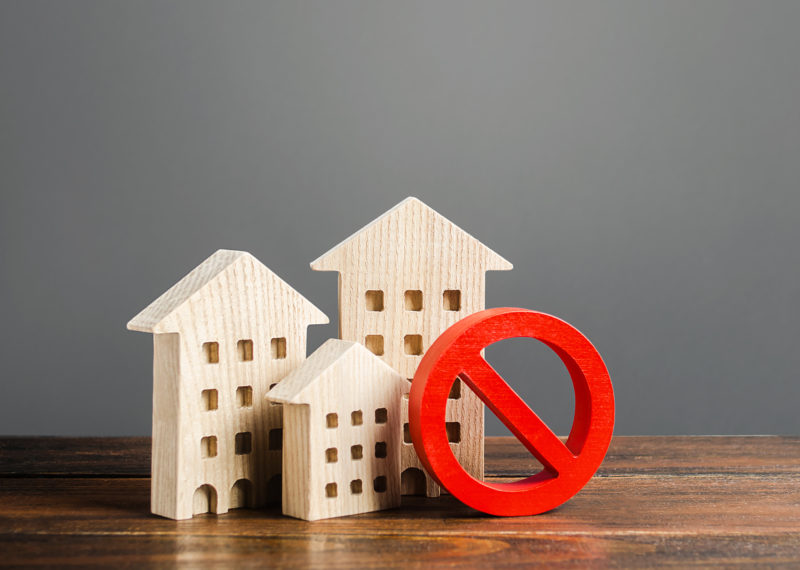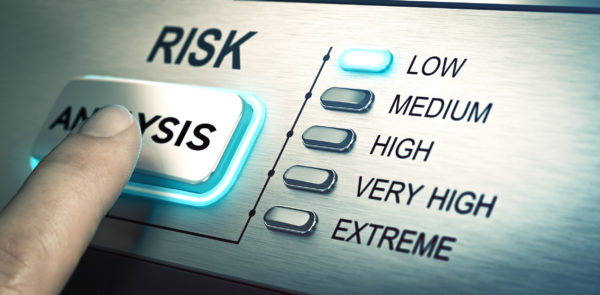What is Second Charge Finance?
Second charge mortgages are a secured loan, which means they use the borrower’s home as security. Many people use them to raise money instead of remortgaging, but there are some things you need to be aware of before you apply. You can find out about what a second mortgage is and if you can get one below.
- How does getting a second mortgage work?
- Why take out a second mortgage?
- What if you move house?
- When not to use a second mortgage
- Some things to consider before taking out a second mortgage
- The risks and alternatives
- How does getting a second mortgage work?
Eligibility Requirements
Well, for starters you’re only eligible for a second charge mortgage if you’re already a homeowner. That said, you do not necessarily need to live in the property. A second charge mortgage can be a loan of anything from £1,000 upwards.
Lenders now have to comply with stricter UK and EU rules, governing:
- mortgage advice
- affordable lending
- sealing with payment difficulties.
This means that lenders now have to make the same affordability checks and ‘stress test’ the borrower’s financial circumstances as an applicant for a main or first charge residential mortgage. Borrowers will now have to provide evidence that they can afford to pay back this loan.
If you sell your home, you will need to pay off your second charge mortgage or transfer it to a new mortgage and just like with any mortgage, failing to repay it could mean you’ll lose your home.
For more details on affordability assessments and evidence in support of your application, read the “How Can I get a second charge mortgage?” section below.
What does a second charge mortgage involve?
A remortgage deal allows you to pay off your existing mortgage and switch to a new mortgage provider, so you still have one mortgage to pay. However, you might consider remortgaging or getting a second charge mortgage for the same reason: to raise extra cash.
Despite what the name might suggest, a second charge mortgage, isn’t quite the same as a traditional mortgage, but more like a secured loan. Although a mortgage is technically a secured loan on the property you’re buying, a second charge mortgage is a secured loan against the home you currently own.
This means if you took out a second charge mortgage you would have two loans, or two mortgages secured against the same property.
A first, or standard mortgage, is a loan based on your credit rating, the size of your deposit, your income, and general ability to repay the debt each month. While a second mortgage is a loan based on the available equity in that same property.
How much can I borrow on a second mortgage?
A second charge mortgage allows you to use any equity you have in your home as security against another loan. It means you will have two mortgages on your home.
Equity is the percentage of your property owned outright by you, which is the value of the home minus any mortgage owed on it. For example, if your home is worth £250,000 and you have £150,000 left to pay on your mortgage, you have £100,000 in equity. That means £100,000 is the maximum sum you can borrow.
A first, or standard mortgage, is a loan based on your credit rating, the size of your deposit, your income, and general ability to repay the debt each month. While a second mortgage is a loan based on the available equity in that same property.
Reasons to Consider a Second Charge Mortgage
There are several reasons why a second charge mortgage might be worth considering:
- if you’re struggling to get some form of unsecured borrowing, such as a personal loan, perhaps because you’re self-employed
- if your credit rating has gone down since taking out your first mortgage, remortgaging could mean you end up paying more interest on your entire mortgage. A second mortgage means extra interest just on the new amount you want to borrow
- if your mortgage has a high early repayment charge, it might be cheaper for you to take out a second charge mortgage rather than to remortgage.
Second Charge Mortgages vs Remortgaging
John and Claire have a £200,000 five year fixed rate mortgage with three years to run until the fixed rate deal ends.
The value of their home has risen since they took out the mortgage.
They have decided to start a family and want to borrow £25,000 to refurbish their home. Should they remortgage or take out a second charge mortgage?
- If they remortgage, they’ll have to pay a £10,000 early repayment charge and there’s no guarantee that they’ll be able to get a better interest rate than the one they are currently paying – in fact, they might have to pay more.
- If they take out a second charge mortgage, they will pay a higher interest rate on the £25,000 than they pay on their first mortgage, plus fees for arranging the second charge mortgage. However, this will be far less than paying the £10,000 early repayment charge and possibly a higher interest rate on their first mortgage.
John and Claire decide to take out a secured loan that doesn’t have any early repayment penalties beyond three years (when their main mortgage deal ends).
At this point, they can decide whether to see if they can remortgage both loans to get a better deal overall.
Considerations before taking Second Mortgage
Before you take out a second charge mortgage, it’s a good idea to get advice from a suitably qualified advisor. They will be able to help you find the loan that best meets your needs and financial situation. They will have to follow the rules as set out by the FCA when dealing with you. These rules are designed to protect you. If you choose not to get formal advice, you run the risk of taking a loan that isn’t suitable for you. If this happens, you might find it difficult to raise a successful complaint.
When you’re looking into a second charge mortgage, make sure you:
- approach your existing lender and ask them what they would charge for an additional loan
- shop around – make sure you get the best rate by comparing lenders’ APRC (annual percentage rate of charge), the duration of the loan and the total amount you’d have to pay back
- Find out the exact mortgage terms, fees, early repayment charges and rates of interest.
- Check the Financial Conduct Authority Registeropens in new window to see if a firm is regulated.
- Read Mortgage advice: where to go for the best mortgage deal.
Scenarios where a second charge mortgage may not be right for you.
Although second mortgages can be useful, taking one out is a big step and you need to weigh up the pros and cons relative to your situation.
Take special care:
- if you’re already only just managing to repay your mortgage. You could lose your home if you cannot keep up repayments on either your mortgage or the second charge mortgage
- if you want to consolidate debts. A low interest rate second charge mortgage can be an ideal way to pay off expensive debts such as credit cards or unsecured loans with high interest rates. By using a longer term repayment period, your monthly costs could be quite low. However, if your second charge mortgage term is long, such as 25 years, you might end up paying more in interest due to the length of term. Also, converting unsecured credit into secured credit could increase the risks of having your property repossessed.
Receiving an offer from a Lender
When the lender makes you an offer, they will have to give you an explanation of the loan’s essential features.
European Standardised Information Sheet (ESIS)
They will also give you a personalised document, possibly referred to as a European Standardised Information Sheet, which:
- provides a reflection or ‘cooling off’ period
- explains the terms of the offer
- recaps some of the details of your loan application
- summarises features including any fees, the APRC and changes to your monthly repayments if the interest rates rise beyond a particular point.
You have the right to take seven days from the time the offer is made to think about whether you want to accept. Some lenders might give you more than seven days.
During this time, the lender’s offer is binding and it will stand by the terms you have been offered. There are a few exceptions though – for example if the information you gave in the application is found to be false, the terms could be invalid. It’s a good idea to take advantage of this time to not only think about the offer you’ve received but to also compare it to other loans.
You don’t have to wait out the full reflection period to tell the lender you’ll accept the mortgage if you’re very sure you want to go ahead with it.
What are the risks and alternatives?
As a second charge mortgage works very much like your first mortgage, your home is at risk if you don’t keep up the payments.
If you sell your home, the first charge mortgage gets cleared in full before any money goes towards paying off the second charge, although the second charge lender can pursue you for the shortfall.
Personal loans and remortgaging
If you need to borrow a small amount of money you’re better off going for an unsecured product such as a personal loan.
If you don’t have a large early repayment charge on your mortgage, you have some equity in your home and your circumstances haven’t changed, you’ll probably be better off remortgaging or taking out a further advance from the same lender.
Benefits of Second Charge Mortgages
The main attraction for a second charge mortgage is that people who have a less than perfect, or bad credit score can still be in with a chance of being approved. Also, it might be easier to get a second charge mortgage, even if you have a fluctuating income, or are classed as self employed.
But before you apply for a second mortgage, get in touch with your existing mortgage provider. Ask them if they’re able to give you any preferential or loyalty bonus rate if you were to take out an extra loan through them. If not, make a note of their rates anyway, as it could work out cheaper than getting a second charge mortgage.
Equally important is to shop around with other lenders. See what their loan rates are like so you get a good feel of how much APR you could be paying. Even if you decide to scrap the idea of getting a second mortgage, you might find a personal loan deal that works for you.
Get all the facts, such as the early repayment fees, if any, how much the APR is, and what you would be expected to pay back each month and for how long.
Second charge mortgage rates
Another reason why people consider taking out a second charge mortgage is that it could work out cheaper than remortgaging when you want to raise extra money. In the below example we look at if it’s cheaper to remortgage or get a second mortgage.
Say, for example, you’re paying for a £250,000 mortgage on a five year fixed rate deal. You have one year left on that five year deal, and you’re looking to switch to a new deal and raise an extra £10,000 before your mortgage possibly moves to a more expensive interest rate. However, the remortgage deal has an early repayment penalty of £5,000.
If you were looking at gaining that extra £10,000 from the equity in your home, then remortgaging would cost you at a minimum £5,000 for repaying the mortgage early. On top of this, you would have to pay the interest on your new mortgage deal. You might have moved over to a better deal, but once that ends, you have no guarantees that the rest of the mortgage will work out cheaper.
With a second mortgage, you continue paying your first mortgage, so you avoid paying the early repayment penalty. However, your loan of £10,000 will most likely have a higher interest rate than on your remortgage deal.
Calculating Interest & Affordability Considerations
Calculate how much interest you’re likely to pay on your first mortgage on a ‘worst case’ basis.
Budget for your repayments if the interest rates were to dramatically increase on your first mortgage. If it still works out cheaper than the rate you will get on your second mortgage, then you know to avoid taking out another secured loan.
Similarly, if you don’t have an expensive early repayment penalty on your mortgage, then remortgaging is almost always going to be cheaper in the long run.
Remember, a second mortgage is secured against your home, so if you fail to keep up with repayments your property could be repossessed. You will have two mortgages that leave your home open to this risk, so it’s best to avoid it if you are only just about managing to repay your existing mortgage.
Even if you decide to sell your home while having both mortgages, the money will go towards paying off your first mortgage before any of it is used on your second mortgage debt. This means that if there is still money outstanding on your second mortgage after the sale of your house, the lender will continue to chase you for the remaining debt.
How Can I get a second charge mortgage?
To apply for a second charge mortgage you don’t necessarily need a very good credit score. In fact, in some cases, you may still be able to get a second mortgage with a bad credit score.
Obviously, in order to be considered for a second charge mortgage you will need to be a homeowner. However, you don’t necessarily need to be living in the property you’re taking out the second charge mortgage on. There are a few reasons why you might want to take out a second charge mortgage. However, before you determine whether or not you can get one, weigh up your options, a second mortgage can be a risky financial decision.
If you have been considering a second charge mortgage, the first thing to do is to decide how much money you need, and what you will be spending it on. You may be able to look at other ways of borrowing money with less risk attached.
For example, if you’re looking at borrowing from a few hundred up to a couple of thousand pounds, then you may want to get a credit card. Some 0% purchases credit cards will allow you to avoid paying any interest for up to 18 months, and sometimes longer.
Similarly, personal loans could work out cheaper than a second charge mortgage, although you would need a very good credit rating for many of these options.













